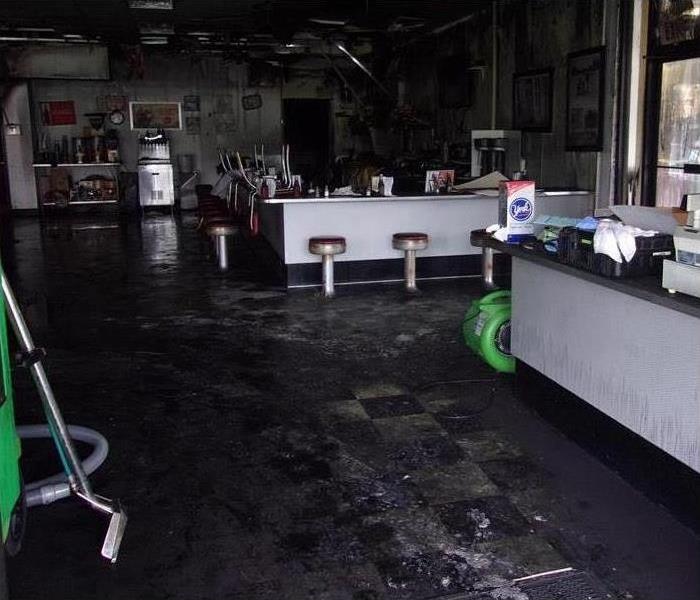How Do I File an Insurance Claim After a Fire?
10/16/2022 (Permalink)
What To Do In the Aftermath Of a Fire
Have you ever wondered what to do after a fire? Unfortunately, fires happen, and most people aren't prepared for the financial impact. Fortunately, it's not as difficult as it seems to claim damages from your insurance company. Here's how to get started with filing a claim after a fire:
Contact your insurance agent
In the wake of a fire, you’re likely to be frazzled. Your first step should be to contact your insurance agent and provide them with as much information about what has happened as possible. If you have an agent already but do not know who it is, try calling your local insurance agency or company and ask for their assistance.
The next steps will depend on how bad the damage is in each room of your Baton Rouge home. For example, if only one room is affected by smoke damage and there are no structural damages (meaning that nothing can fall or collapse), then this may be covered under basic homeowner's coverage. However, if several rooms were burned through completely or there are signs of water damage nearby due to hoses being used during cleanup efforts (which could lead to mold growth), then those kinds of claims would have to go through an additional detailed process before they can move forward with repairs
Document the Damage
- Photographs are the most important part of this process. Make sure you take photos of all areas that were damaged by the fire, including walls, floors, and ceilings.
- Make a list of all damaged items with their original purchase date and price. Then keep receipts for any expenses related to your claim such as temporary living arrangements or repairs. You can keep these in one folder for easy access when submitting your claim to your insurance company.
- Keep copies of any police reports that show how much damage was caused by the fire and who was responsible for it (if applicable).
Know What's Covered
Before you file a claim, make sure you know what's covered and what isn't:
- Check your policy. Your insurance company may only cover damage to the building or home itself, but not any other structures on the property (like fences or sheds). If you need to repair these items, check with your insurance company first to see if they're covered by your policy.
- Check your deductible. Once again—your deductible is an amount of money that you pay before they start paying out anything at all. For example, let's say someone breaks their leg in an accident involving something that was previously insured by their house's owners association (HOA). The HOA can go after either party for damages incurred as part of their policies; if so, it will be determined later whether or not there was negligence involved on either side and how much each party would owe based on whatever had been agreed upon beforehand via contract law (or lack thereof).
Claiming damage from a fire is like other insurance claims, but you should work with a professional restoration company.
Fire damage is different from other types of damage, and the process of claiming it can be complicated. If you decide to claim on your insurance for fire damage yourself, there are many pitfalls that you should avoid. You should work with a professional restoration company so they can make sure everything is done right and you get the money that's rightfully yours. Some professional restoration companies, such as SERVPRO of South Baton Rouge, can take care of the whole insurances claims process for you.
When a fire damages property, it's not just physical damage that needs to be repaired: There may also be smoke or water damage as well as structural issues in addition to cosmetic ones (such as smoke stains). It's important that these areas are restored correctly so they don't cause problems down the road or become more expensive than necessary. With specialized training and equipment specifically designed for this type of work, professional restoration companies have everything they need to make sure properties receive thorough care when recovering from fires—and this makes hiring them worthwhile even if their rates seem high at first glance!
In conclusion, it's important to know what your insurance covers and how much coverage you have. If you're in doubt, speak with an agent to make sure that you're covered for fire damage.



 24/7 Emergency Service
24/7 Emergency Service
